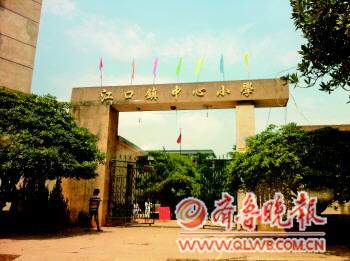GM food testing worries parents
 0 Comment(s)
0 Comment(s) Print
Print E-mail Xinhua, September 12, 2012
E-mail Xinhua, September 12, 2012
Parents in a rural China town are frightened over claims of potential risks linked to genetically-modified (GM) food, as the government is continuing a probe into whether the town's children were used as guinea pigs for a U.S.-China research program four years ago.
 |
|
Students in Jiangkou Primary School are said to be fed modified "golden rice". |
Dozens of children in the town of Jiangkou, located in central China's Hunan province, are believed to have been fed modified "golden rice" as part of a nutrition research program led by a professor from the U.S.'s Tufts University in 2008.
Claims regarding the potential health risks of GM food -- some of which appear to have been exaggerated -- have triggered anxious speculation the parents of children attending the Jiangkou Central Primary School, where the experiments allegedly took place.
"Rumors are everywhere. Some say the kids may suffer from lung disease or lose reproductive capabilities when they grow up," said a parent surnamed Liu whose 11-year-old child allegedly participated in the test.
"I only learned the news a few days ago. I am very worried because it seems that no one can clearly explain what happened," said Liu.
Many of the parents have been frustrated by the progress of an official investigation launched in late August, as full results have yet to be announced. Some of the parents have tried to learn more about GM food on their own by searching for related news reports and information on the Internet.
Ministry of Health spokesman Deng Haihua on Tuesday urged the Chinese Center for Disease Control and Prevention (China CDC) to further investigate the case and publish their results in a timely manner.
The China CDC on Monday suspended a fellow researcher allegedly involved in the case for his "inconsistent accounts during the investigation." Government departments and research institutes have denied granting approval for the experiment.





